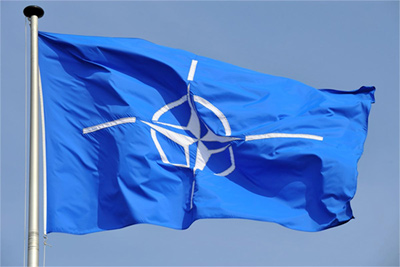
Presentation on the NATO Summit is held in Tashkent
The agenda for the NATO Summit in Wales and the Alliance’s co-operation with partners in Central Asia were key themes of a presentation given at the University of World Economy and Diplomacy (UWED) in Tashkent on 4 September.
The event was dedicated to the opening of the NATO Summit in Wales and organised by the Office of the NATO Liaison Officer in Central Asia and the British and Italian Embassies in Tashkent together with the University of World Economy and Diplomacy (UWED). The presentation was designed to inform the UWED faculty and students about the priorities for the Summit and NATO’s activities in Central Asia.
After opening remarks by Dr Nodir Jumaev, the Rector of UWED, Mr Raimonds Vingris, NATO/ISAF Transit Liaison Officer, briefed the audience on the NATO Summit, the mandate of the Office of the NATO Liaison Officer in Central Asia and the cooperation between NATO and Uzbekistan.
At the Summit, leaders will discuss a range of international issues including how best to support the long-term security and prosperity of Afghanistan following the draw-down of the international force there. The Italian Ambassador to Uzbekistan, Mr Riccardo Manara outlined Italy’s priorities within NATO and the role of the Italian Embassy as the current NATO Contact Point Embassy in Uzbekistan.
The British Ambassador to Uzbekistan, Mr George Edgar delivered the concluding presentation. The UK has been at the heart of NATO since 1949 and contributed to numerous NATO missions, including the operation in Afghanistan, where the UK was the second biggest contributor to the ISAF forces.
Ambassador Edgar also informed the audience about UK priorities for the Summit. These include continuing support to the Afghan Government as the ISAF mission ends, discussion of the long-term implications of the Russia-Ukraine crisis and how NATO will continue to provide for the collective security of all NATO members and partners.
The UK is determined to ensure that NATO is able to adapt to address new challenges to stability and security.
The presentations were followed by a discussion and a Q&A session in which the audience had an opportunity to ask the guest speakers about NATO goals and activities, as well as discuss issues of global and regional security.